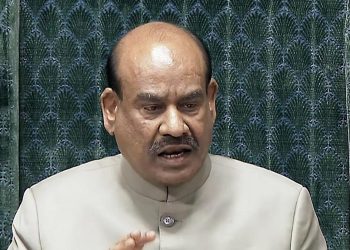
Investors heavily exposed to US stocks just had their best week of the year. But the rebound also raised several questions related to market behavior, policy and economics. How they are answered will prove consequential not only for market prospects but for the global economy. And, notwithstanding the lack of decisive answers at this stage, there are already implications for investment portfolios.
Last week’s strong US equity performance stood in stark contrast to two other market developments.
First, yields on government bonds fell across the board, driving the benchmark 10-year to below 2.10 per cent and that on its German counterpart to minus 26 basis points. The moves are good news for stock investors if they foresee more dovish central bank policies — but less so if they signal a lower global growth picture.
There is also uncertainty as to the repercussions of such low interest rates. Will they fuel “Japanification” in Europe and, to a lesser extent, the US as households hold back on consumption and worry about shrinking access to long-term financial protection products, while companies hold back on investing? And how deep will the resulting damage be to the longer-term functioning of financial markets?
Another issue is the flood of investor money going into bond funds at such low interest rates. Is it a sign of appropriate, forward-looking risk-management or, instead, a backward-looking, pro-cyclical reaction that increases the vulnerability of investors to future losses?
The second big market anomaly relates to the performance of the higher risk asset classes known as “high beta.” It was notable that, given the sharp rise in US stocks, quite a few of them, including important segments of emerging markets and high-yield corporate bonds, did not rally by as much as would be expected based on historical experience. Was this just a temporary phenomenon or the result of spreading concerns about the global economy?
Turning to policies, there is a disconnect between the cuts now priced in by markets and the consensus justification for such an aggressive policy move by the Federal Reserve.
With the fall in yields, investors are pricing in interest rate cuts of 75-100 basis points over the next two quarters. That goes well beyond anything the Fed has signaled, or is likely to signal in the short-term. An “insurance cut” in interest rates is the most popular market justification for such a further dovish shift by the Fed. That is, rather than reacting to convincing evidence of a significant economic slowdown, the central bank would be building a buffer to counter the effects of trade tensions and weakness elsewhere, particularly in Europe.
Yet the 75-100 basis points priced in by markets goes well beyond an insurance cut, placing the Fed in a lose-lose situation: Either it fails to validate what markets expect or it ends up being forced to react to convincing evidence of a downturn. Neither would encourage market stability.
As I argued last week, the effectiveness of monetary policy is also an issue. The forces holding back growth, here and elsewhere, are not related to financial conditions (that is, the cost of borrowing and the availability of funding). Rather they reflect a series of structural and demand impediments to growth that lie outside the purview of monetary policy.
Continuing to rely on monetary policy to buy time, both for the economy and for other policymakers, is not without cost. While renewed central bank dovishness could succeed in elevating asset prices, that would only decouple them further from their underlying economic and corporate fundamentals. That hardly bodes well for the longer-term durability of investment gains or for financial stability.
Friday’s jobs report also surprised markets. This widely watched data release disappointed on account of shortfalls in both job creation, which was widespread among economic sectors, and wage growth. Moreover, there was no pickup in labor force participation.
Having said that, the report also looks less worrisome when viewed through a multi-month prism. As such, there is genuine uncertainty whether its weakness is a one-off phenomenon or, instead, reflective of more durable challenges to the impressive labor market performance that has underpinned household consumption and encouraged companies to invest.
Inability to answer all these questions with conviction at this stage is reflective of the clouds of uncertainty hanging over markets, policies and the economy. But that doesn’t mean there are no immediate implications for investment portfolios. Instead, there is enough unusual economic and financial fluidity to support the strategy of exploiting the recent rally by going up in quality while reducing overall risk exposures.
To the extent that the answers bode less well for the US economy, too, they are likely to imply even larger challenges for the rest of the world. As such, it may not yet be time for investors to give up the multi-year bond and equity positioning that, in relative terms, has favored US securities.









Discussion about this post